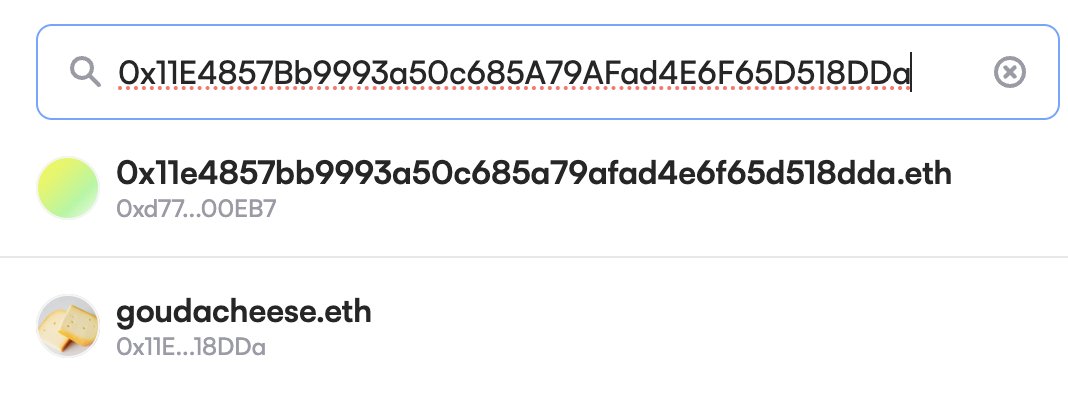With the rise of the cryptocurrency markets, it seems that scammers are also increasing their efforts. They are developing various methods. Today, we issued a warning about attacks carried out using a different method. The announcement from the DWF team focused on scammers posing as company employees. The founder of Uniswap warned of a different method.
Uniswap Founder Issues Warning
Hayden Adams, the founder of the DeFi platform Uniswap, is a name closely followed by the crypto community. Various scamming methods are being developed around such popular figures. Fake YouTube live streams, fake social media accounts, fake profiles on other social media sites, and much more. Now, scammers keeping up with Web3 have started using fake Ethereum Name Service (ENS) addresses.
On February 14th, Adams shared the following image, exposing the scammers’ new method. When users paste their wallet address into certain crypto interfaces, a fake ENS address appears as the top suggestion, and those who don’t pay attention end up sending crypto to an address that belongs to scammers but is masked as Adams’ address.

Adams believes that in order to prevent such attacks, cryptocurrency platforms need to regularly filter and even block addresses ending with .ens.
Scammers Continue Their Operations
Cryptocurrency investors have been sharing their complaints against an increasing number of scam emails. Emails that appear to be from companies are actually directed by scammers. Mail campaigns announcing fake airdrops, pretending to be from WalletConnect, Token Terminal, and other crypto companies, create highly convincing scenarios.
FTX bankruptcy committee or any crypto company might send emails that look so professional at first glance that you can’t tell if they’re genuine or not. At this point, it’s important for investors to always be skeptical and to verify multiple times before making any transactions.
A security breach at MailerLite directly led to scam emails that looked like they were from companies reaching victims, resulting in a reported loss of $3.3 million. There is a possibility that they could directly hack email services and send these from real addresses. They can also do this without hacking the mail service, using advanced masking techniques.
Although it may seem unbelievable, masking techniques in attacks have even led to victims in Turkey receiving calls from what appeared to be the number 155 or different corporate numbers.









